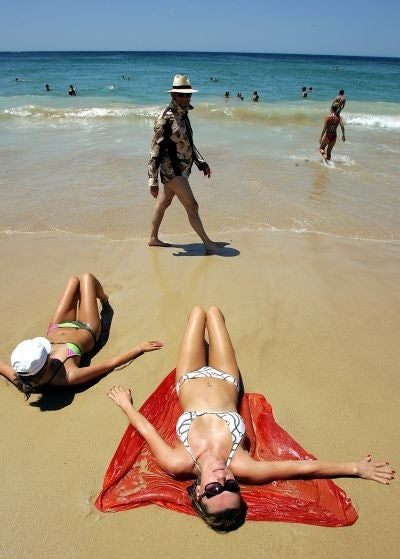Your support helps us to tell the story
From reproductive rights to climate change to Big Tech, The Independent is on the ground when the story is developing. Whether it's investigating the financials of Elon Musk's pro-Trump PAC or producing our latest documentary, 'The A Word', which shines a light on the American women fighting for reproductive rights, we know how important it is to parse out the facts from the messaging.
At such a critical moment in US history, we need reporters on the ground. Your donation allows us to keep sending journalists to speak to both sides of the story.
The Independent is trusted by Americans across the entire political spectrum. And unlike many other quality news outlets, we choose not to lock Americans out of our reporting and analysis with paywalls. We believe quality journalism should be available to everyone, paid for by those who can afford it.
Your support makes all the difference.On July 13 hot debate sparked in Australia with the proposed sale of SPF 50+ sunscreens in the country. Currently SPF 30+ is the highest protection available.
Despite government officials giving the sale of higher protection sunscreens the thumbs up, Australia's Cancer Council and other critics claim that the label "SPF 50+" is misleading, gives consumers a false sense of security, and is only a 3 or 4 percent improvement over SPF 30+.
Australia has the highest rate of skin cancer in the world.
In June, the US Food and Drug Administration (FDA) announced "significant" changes to sunscreen labeling to help consumers make better choices about sunscreen products, and to catch up to European standards. Among many changes, sunscreens cannot be labeled any higher than SPF 50+, which is the standard in the EU.
Last month, the Environmental Working Group (EWG), a US-based advocacy group working to expose hazards to health and the environment, released its yearly list of the safest and most effective sunscreens, lip balms, and moisturizers with SPF. The comprehensive sunscreen guide includes a list of 129 products offering effective and safe sun protection as well as those to avoid.
Top-rated sunscreens contained zinc oxide and titanium dioxide, considered highly effective against sun damage.
The EWG also recommends avoiding sunscreens with bug repellent; staying out of the sun during peak hours (between 10 am and 4 pm); dressing appropriately to reduce exposure, such as wearing wide brimmed hats and anti-UV sunglasses; and avoiding sunscreen in spray and powder forms, which could damage lungs over time.
Read more on the debate in Australia: http://au.ibtimes.com/articles/179174/20110713/sunscreen-sunburn-spf-level.htm

Join our commenting forum
Join thought-provoking conversations, follow other Independent readers and see their replies
Comments